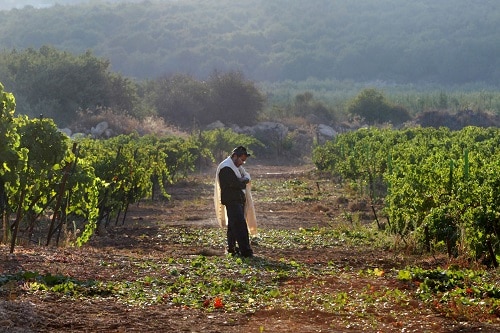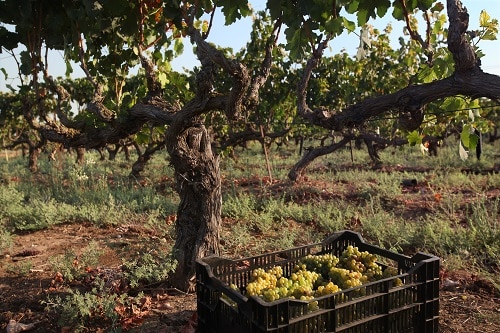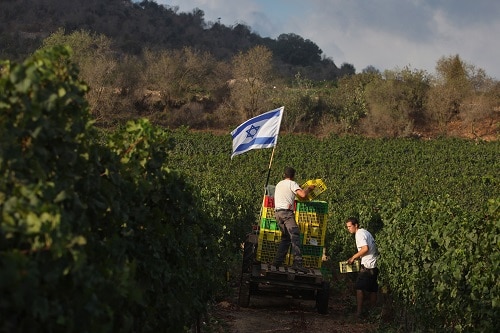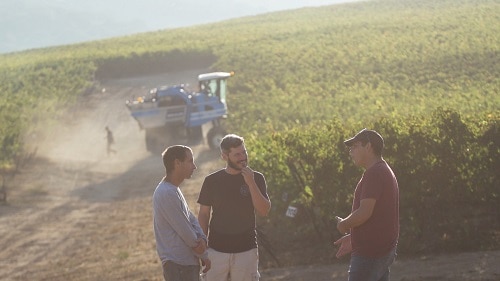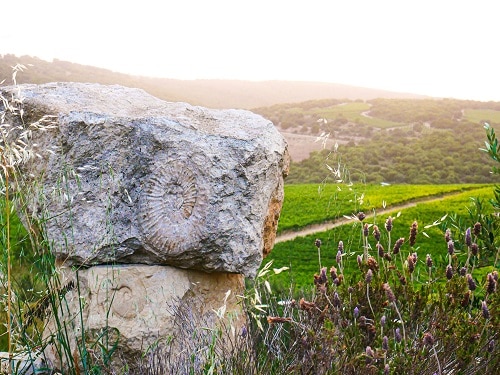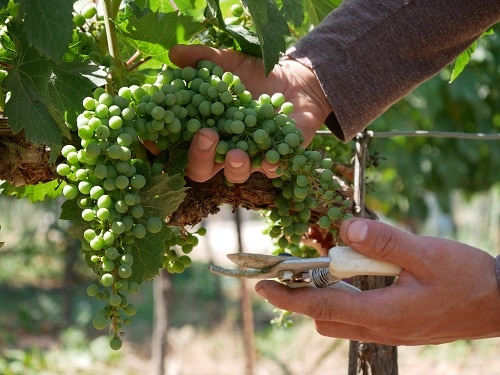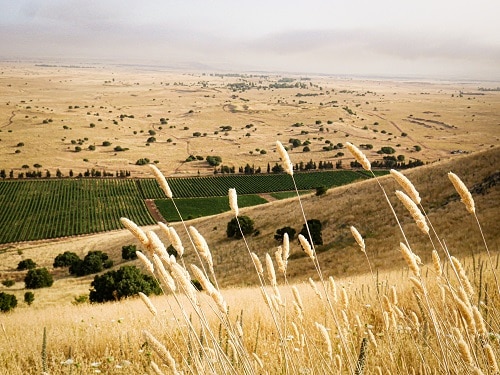Israeli Wine’s Time to Shine: A Regional Overview
Last Updated on August 23, 2022.
For a region that boasts a 5,000-year history of making wine, it has not been until the last 20 years or so that Israel has really jumped into the spotlight showing off dynamic, quality wines for international wine critics and enthusiasts. It was Baron Edmond de Rothschild, owner of Château Lafite, who founded the modern wine industry in the area in the 1880s-90s, but the industry did not flourish until the 1980s when technological advances made their way into the region. By the 1990s, a winery boom began as internationally trained winemakers made their mark on a blossoming industry.
Now, Israel claims over 300 wineries, with 70 of them being commercial. Each year, 60,000 tons of wine grapes are harvested to produce 40 million bottles, and the U.S. is the recipient of a majority of the country’s wine exports (55%). Israel is truly a wine-producing country with passionate and driven winemakers and growers creating high-quality wines with international and local grape varieties.
RELATED: Israeli Wineries to Visit: Travel Guide for a Wine Tasting Adventure
Israel’s Climate, Terroir, and Grapes
Israel is a country on the Mediterranean Sea and so it makes sense that the country’s climate is primarily Mediterranean with long, hot summers, and short, wet winters. Because much of the country has a hot, dry climate, a lack of water is a major concern when it comes to farming. Some of the vines are planted at high altitudes where the climate is slightly cooler in order to allow for a longer growing season. The soil structure is different across the country with volcanic soils found in the north, sandy red soils along the coast, and chalk and limestone soils in the hills. Currently, there are about 5,500 hectares (13,585 acres) under vine throughout the country with a breakdown of production by region: Upper Galilee-20%, Lower Galilee-5%, Golan Heights-18%, Coastal Plain-15%, Judean Foothills-27%, Central Mountains-11%, and the Negev-4%.
Both international and local grape varieties are grown throughout the country. Many of the wines that Israel has received international recognition for are red Bordeaux Blends, with Cabernet Sauvignon and Merlot being dominant varieties. Winemakers in the region have also been experimenting more with Mediterranean varieties in southern Rhone-style blends, which are becoming more popular.
The main international grapes you can find in wines coming out of this country include, Cabernet Sauvignon, Merlot, Shiraz/ Syrah, Carignan, Petit Verdot, Cabernet Franc, Petite Sirah, Chardonnay, Sauvignon Blanc, Gewurztraminer, Muscat, and Colombard. Local grape varieties are the following: Argaman, Baladi Asmar, Bittuni, Dabouki, Hamdani/ Marawi, and Jandali.
Israeli Regions
Though it is a thin country, Israel is full of different microclimates. From the Dead Sea, which is the lowest point on earth, to the Central Mountains at 1,000 meters above sea level, and to the desert of the Negev, Israel is extremely diverse in its geographical offerings. It may be hard to believe that the country could fit into the state of New Jersey. Most of the wine production started around the coastal areas but has moved further north and east into the cooler areas of the Golan Heights, Upper Galilee, and the Judean Hills.
Galilee
(Upper Galilee, Lower Galilee, Golan Heights)
The registered region of Galilee includes the three areas of Upper Galilee, Lower Galilee, and Golan Heights, which is also further separated into the Southern, Middle, and Upper regions.
Upper Galilee is in northern Israel, and it is regarded as one of the most beautiful wine regions in the country. It is a mountainous area with heavy, volcanic gravel and terra rossa soils that are well-drained. The parts of the region near Lebanon are about 350-400 meters above sea level, and the areas near Mount Meron are about 650-1000 meters high. Winter temps can dip down to 0 degrees Celsius, and summer temps are usually around 12-30 degrees. Vines were first planted in this region in the 1990s.
Lower Galilee is near Mount Tabor and is about 200-400 meters high. Soils here are a mix between volcanic and limestone. The most famous winery in the Lower Galilee is Mount Tabor Winery.
The Golan Heights was first planted with quality grapes in 1976, and it was the first region in Israel to draw international attention for its award-winning wines. The region is a volcanic plateau that rises to 1200 meters. Cool breezes from snow-covered Mount Hermon keep the region more moderate. The Southern part of Golan Heights is overlooking the Sea of Galilee and is about 350 meters above sea level with basaltic clay soils. The middle region rises 400-500 meters, and the Upper is 750-1200 meters with volcanic basalt soils and winter temps that dip into the negatives.
Wineries in Upper Galilee: Dalton, Jacques Capsouto, Covenant Israel, Kishor, Lueria, Or Haganuz, Recanati
Wineries in Lower Galilee: Tabor, Jezreel Valley
Winery in the Golan: Yarden – Golan Heights
Shomron
(Mt. Carmel, Menashe Hills, Shomron Hills)
Most of the registered Shomron region includes the Central Mountains that run from Haifa along the center of the country. The main vineyards in this region are in the valleys near the towns of Zichron Ya’acov and Binyamina, which benefit from the protection of the mountain ranges and the cooling breezes of the Mediterranean. This area was one of the first regions planted by Baron Rothschild in the late 1800s.
The Shomron Hills region is one of the newly planted areas with vines going in the ground in the early 2000s. Altitudes here can reach 800 meters above sea level.
Wineries in the Mount Carmel region: Carmel, Maia, Somek, Tulip
Wineries in the Shomron Hills: Gvaot, Tura
Samson
(Central Coastal Plain, Judean Foothills)
Samson is the registered area that includes the Central Coastal Plain and Judean Foothills.
The Central Coastal Plain is located southeast of Tel Aviv, while the northern parts of the central coast go up to the Hanadiv Valley and Sharon Plain. This is another region that was originally planted by Rothschild in the 1880s, primarily because it is located near farming villages in the area. The main crops are strawberries and citrus fruits, and therefore, many of the vineyards have been replaced by real estate development in the highly coveted coastal areas. It is a hot and humid region that rises only up to about 100 meters above sea level. Soils include alluvial, sandy, clay loam, and terra rossa. Summertime temps can rise to 32 degrees Celsius.
The Judean Foothills region is an area along the route from Tel Aviv to Jerusalem. The elevations are higher here than at the coast with equally as high summer temps. Judean Foothills wineries are popular destinations due to their proximity to the cities of Tel Aviv and Jerusalem.
Wineries in Coastal Plain: Alexander, Meishar
Wineries in the Judean Foothills: Barkan, Bravdo – Karmei Yosef, Segal
Judean Hills
(the hills to the west, north & south of Jerusalem)
The Judean Hills registered region has had wineries since the 1990s. This area experiences warm days and cool nights and has stony terra rossa soils on a bedrock of limestone. The altitude north and south of Jerusalem can reach 1000 meters, while the hills rising toward the city are about 300 meters. Around the Judean Hills are numerous nature reserves and a traditional Mediterranean landscape.
Wineries in the Judean Hills: Ella Valley, Five Stones, Hayotzer, Jerusalem Wineries, Teperberg
Negev
(the Negev Highlands)
The Negev is the desert region in the south that makes up half of the country of Israel. Vineyards are planted in the Negev Highlands area that can reach up to 900 meters with sandy loam and loess soils. During the summer, temperatures can hit 40 degrees Celsius, but though the days are very warm, the nights are very cold. Due to the lack of humidity in the area, diseases of the vine are rare, however, the vineyards are not always protected from roaming camels that may snack on grapes as they pass through.
Winery in the Negev: Yatir
A Note about Kosher Wines
It’s important to note that not all Israeli wines are Kosher, and not all Kosher wines are Israeli. The Kosher designation means “pure,” and these wines are made for Orthodox Jews who observe Jewish Dietary Laws. The designation of Kosher does not have anything to do with the quality of wine. In fact, many Kosher wines have proven to be of excellent quality on an international market. Kosher wines follow the same winemaking processes as wines that are not Kosher, but simply with the added element of following restrictions set out by Jewish Dietary Laws.
*Information received from Wines of Israel. Images courtesy Wines of Israel and Aleksandra Trochimiuk.
Written By Jacqueline Coleman
Jacqueline Coleman is a professional wine + travel writer, wine judge, columnist, and consultant based in Miami, FL.
